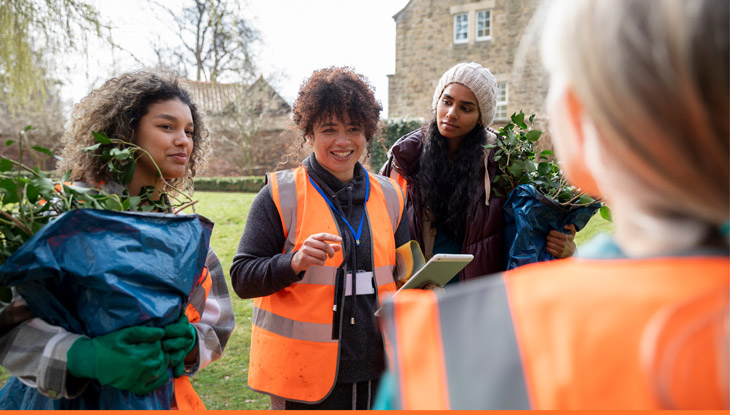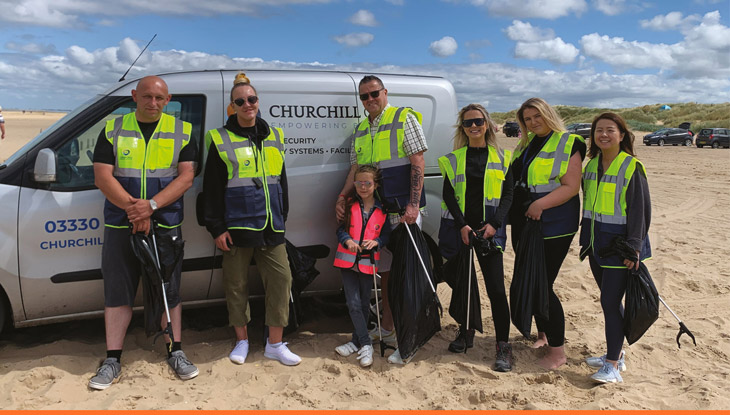

Looking Back at 2022 and Ahead to 2023
December 19, 2022
It seems hard to believe that another year has come to an end. 2022, as seems to be the way of things now, delivered so many talking points it’s difficult to know where to start. From war in Ukraine to the joint hottest English summer on record, to the Lionesses conquering Europe on home soil, the highs and lows were as constant as they were unpredictable.

The business world was not immune from tremors either. Elon Musk’s takeover of Twitter, nationwide UK strike action, and the collapse of the cryptocurrency exchange, FTX, all contributed to a year that simply refused to sit still.
Although there is so much that could be covered, I’d like to focus on some of the events of 2022 that gave me pause for thought and where I believe we could be headed in 2023.
The Energy Crisis
For most of us, 2022 comes to an end amid freezing temperatures and central heating systems we’re wary of firing up for what it might cost. The current energy crisis began simmering in the aftermath of Covid-19 as global markets began waking up to the fact that major problems loomed on the horizon. Coupled with a cold snap that blanketed much of Europe and the conflict in Ukraine, it was this year that the cost of wholesale natural gas really began spiralling.

However, as so many customers were locked into fixed-term contracts, UK energy firms were unable to pass on these rising costs, and many imploded as a result. Those remaining suppliers have had few options but to raise unit prices in order to survive, meaning people without fixed-term contracts are experiencing some of the largest bills they’ve ever known.
Business customers have suffered the same fate as their domestic counterparts with some having already fallen by the wayside due to exorbitant charges.
As we transition into 2023, something will have to give and it could present the UK government with an unenviable dilemma. Either it steps in to protect businesses at the expense of the public purse or protect the public purse and preside over a raft of potential business closures. We’ll soon find out which is the preferred option.
Climate Change
On Monday 18 July 2022, Britons leaving their homes to go about their business met a glower of warmth that unsettled the senses. At daybreak, the temperature was more akin to midday heat and as the day went on, it only got hotter.

Records were quick to show that that Monday in July was the UK’s hottest day ever with Coningsby in Lincolnshire topping the table at a scary 40.3°C.
Britain’s scorching summer temperatures were replicated across the globe, giving some impetus to the COP27 event in Egypt. Though important progress in some areas was made this year, fears remain that existing commitments fall short of what’s necessary to prevent catastrophe in the coming years.
However, reticence towards more robust climate action from global administrations is not being shared with large swathes of the business community. This brings me to my next reflection.
The Growing Uptake of CSR
As the impact of climate change, extreme weather events, and biodiversity loss become harder to ignore, companies are increasingly evaluating the role they play in both their local communities and within the global community more broadly. Not only are they being held accountable for their actions from a regulatory perspective, but consumers are also voting with their feet.

Closer to home, the team at Tariff.com were delighted to announce that the company had become an official carbon-neutral consultant. It comes on the back of years dedicated to the promotion of renewable energy and carbon offset initiatives that are propelling its customers toward a net-zero future.
Giving Back Ramps Up
CSR endeavours in 2022 have also been matched by deeper corporate involvement in charity work and initiatives to improve local communities.

For example, in July, Churchill Support Services took part in a beach clean-up at Ainsdale Beach in Southport. Over the course of the day, volunteers removed deflated balloons, plastic bottles, straws, spoons, and wrappers, and the remains of numerous BBQs.
Much of the debris had already begun making its way into the sea, meaning the team braced the cold waters to retrieve what they could.
The beach clean-up is to be buttressed this Christmas with a donation from Churchill Support Services to UK-based charity Save the Children, which works to improve the lives of vulnerable children across the globe.
Meanwhile, Elite Group is channelling its support towards Chorley charity, Help the Homeless.
Looking Forward to 2023
Unfortunately, many of the current pressures on homes and businesses will carry over into the new year. Soaring energy bills, rampant inflation, the Ukraine conflict, and climate concerns are all set to be with us for the foreseeable. However, it is during such times of hardship that we must strive to look for the positives.

A growing appreciation of the reality of climate change, coupled with more far-reaching CSR initiatives, means the path has been cleared toward a greener future. By extending the same level of consideration shown towards our environment towards each other, a path to a brighter one is also possible. Let’s make a start in 2023.